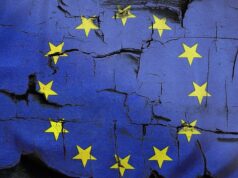Twenty years after the introduction of the euro, EU leaders have recognized the importance of the single currency. „The euro has become a symbol of unity, sovereignty and stability,“ said European Commission President Jean-Claude Juncker today in Brussels.
The signing of the Maastricht Treaty for a European economic and monetary union was „the most important signature of my life“.
„Testimony of political and economic power“
EU Council President Donald Tusk said: „Like the liberation of Central and Eastern Europe and German reunification, the creation of the euro 20 years ago has been a crucial moment in European history.“
Today, the euro is a „testimony to the political and economic power“ of the EU on the international stage. At the same time Tusk and Juncker pointed to upcoming tasks. „We are (…) continuing to work intensively to complete our economic and monetary union and to further strengthen the international role of the euro,“ said Juncker.
Second most important currency in the world
On 1 January 1999, the euro was first used to clear the common currency of the eleven countries Belgium, Germany, Finland, France, Ireland, Italy, Luxembourg, the Netherlands, Austria, Portugal and Spain. From then on, it was possible to pay in euros by check, credit or debit card. In 2002, the cash followed.
Since its introduction, the euro has been the second most important currency in the world. About 340 million citizens use it in the 19 euro countries. In addition, 60 countries worldwide use it or have their currency tied to the euro – including the EU member states Bulgaria and Denmark.
According to the will of the European Commission, the euro should play a more important role globally in the face of growing crises and uncertainties. Above all, energy imports into the EU should be handled more strongly in euros.



